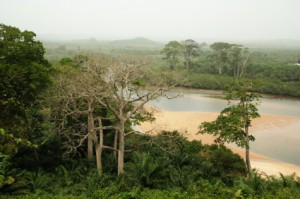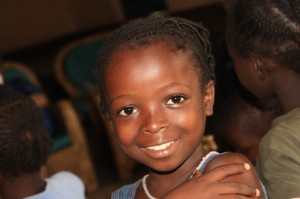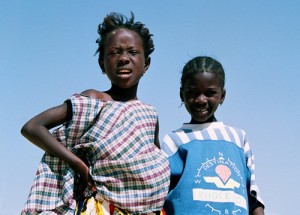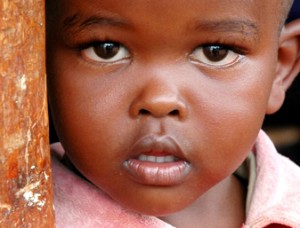This program is closed. Please contact Children of All Nations to learn about other programs that could be a good fit for your family.
Ghana Adoption[Waiting Child Photolisting] – [Ghana News & Updates]Ghana is one of the world’s fastest growing economies and does not have a lot of civil unrest in its history. It ranks in the top quarter of the world’s most peaceful countries, so families are sure to feel comfortable traveling for their adoption. Our team in Ghana that will guide you through your adoption journey is comprised of a reputable lawyer with a history in social work and over a decade of experience working with the Department of Social Welfare, as well as a team of travel guides from both the US and Ghana who will ensure your experience is seamless and stress-free. Adoption in Ghana is handled by the Department of Social Welfare (DSW)- Client Services Unit, and the local court system. Families will work with CAN’s lawyer and local representatives to submit their dossier to the DSW, who issues the referral, and later to the court for final approval of the adoption. Adoptions in Ghana are only legal when the DSW approves them, and they are only complete once the court approves them. Ghana is not party to the Hague convention. If you would like more information about our Ghana program, our adoption specialists would love to speak with you! Call them today at today (512)323-9595 or send us an email. There are many older children and children with special needs available. When selecting a program, consider the following about Ghana’s children: Children of All Nations is also proud to be an advocate for children exposed to HIV. The Gift of Hope: HIV/AIDS program provides education, resources and advocacy for children effected by HIV/AIDS. To learn more, please visit our Gift of Hope webpage. If you would like more information, please give us a call today at (512)323-9595 or send us an email. Special needs and older children, as well as sibling groups, are also desperately in need of loving homes. CAN works with partners in Ghana to advocate for older children/siblings and children with HIV or other medical conditions through our Waiting Child Program. CAN staff search for potential matches for the children with families in process with CAN or those who have a Waiting Child Profile on file with our agency. The children may be identified by your family from the listing we receive either pre or post-dossier submission. If you are pre-dossier, you will need to have an approved homestudy to formally submit an application to adopt the child. For more information concerning Ghana’s waiting children, please call us at (512)323-9595 or send us an email. In addition to the USCIS eligibility requirements for prospective adoptive parent(s), Ghana has the following adoption eligibility requirements. If you feel you are not eligible to adopt from Ghana, please contact us for a free case-by-case consultation regarding your adoption. Ghana adoption eligibility requirements are subject to change per Ghana’s adoption laws. CAN updates these guidelines as necessary. If you would like more information about our program call an adoption consultant today at (512)323-9595 or email us. 1. Application and Approval To adopt a child, please complete our online agency application. If you have any concerns about eligibility requirements, please contact us before filling out this application. We will review your eligibility to adopt from Ghana based on the guidelines of Ghana’s adoption eligibility requirements once we have received your application. If approved, we will provide you with our agency contract that outlines our fees, services and important information regarding the international adoption process. Upon receipt of your signed contract, CAN will start to provide you with placement services for a child from Ghana. 2. The Paper Chase Once your agency contract is in place, you will be assigned to an adoption counselor and begin assembling your dossier. This will include a home study, which will assess your readiness for international adoption from Ghana and help prepare you for adoptive parenthood, filing with USCIS for international adoption approval, and gathering your dossier documents. These dossier documents must go through the appropriate notarization and certification. Your dossier will be reviewed and assembled at our headquarters in Austin, TX, before being sent to the Ghana adoption authorities for approval. CAN offers a complete Elite Dossier Service to ease your international adoption process and give you peace of mind. To ensure that prospective adoptive parents are prepared for their international adoption journey, our agency requires that parents complete 10 hours of adoption training as mandated by the Hague Convention. To satisfy these hours, we have developed an online parent training program that we are proud to include in CAN’s service plan. For an overview of the program, please click here. Please contact us for more information regarding adoption from Ghana. 3. Identifying a Child After parents submit their dossier to CAN, the dossier and application to adopt is sent to the Department of Social Welfare for approval and a referral. Families will receive medical information and pictures of the child they are being referred. The referral may take anywhere from one month to one year, depending on the age and number of children you wish to adopt, or if they have special needs. However, the average wait time is approximately 4 months for a child 3 and older. 4. Picking up Your Child After a referral is accepted, there is a 3 month waiting period, and then the case will be registered in court. Both parents should travel to Ghana to attend the court hearing. In special circumstances one parent’s requirement to appear in court may be waived. After the court issues an adoption decree, parents will file immigration paperwork with the US Embassy. At this time given unknown visa processing times, it is best if the parents leave Ghana and return to pick up their child. The U.S. Embassy will investigate the child’s background, and parents must return to Ghana 3-4 months later to pick the child up take them to the U.S. 5. Post Adoption Requirements CAN requires 2 post-adoption reports to be issued at 6 and 12 months after the adoption is finalized. These reports must be submitted to demonstrate the benefits of international adoption for their children. However, in large cities, the numbers of orphans and abandoned children in large children’s homes is staggering and they are in desperate need for families. Because most infants are taken in immediately by friends or relatives, usually only toddlers and older children are living in orphanages and are available for adoption. Due to the overwhelming number of children in these homes, although the children are often screened for serious medical conditions upon entry (HIV, hepatitis, tuberculosis, etc), continuing medical care and proper nutrition can be hard to come by. There are often not enough caretakers to truly give each child the physical, emotional care, and attention they need.[/su_spoiler]
Official State websites Health and Wellness Support and Education |




